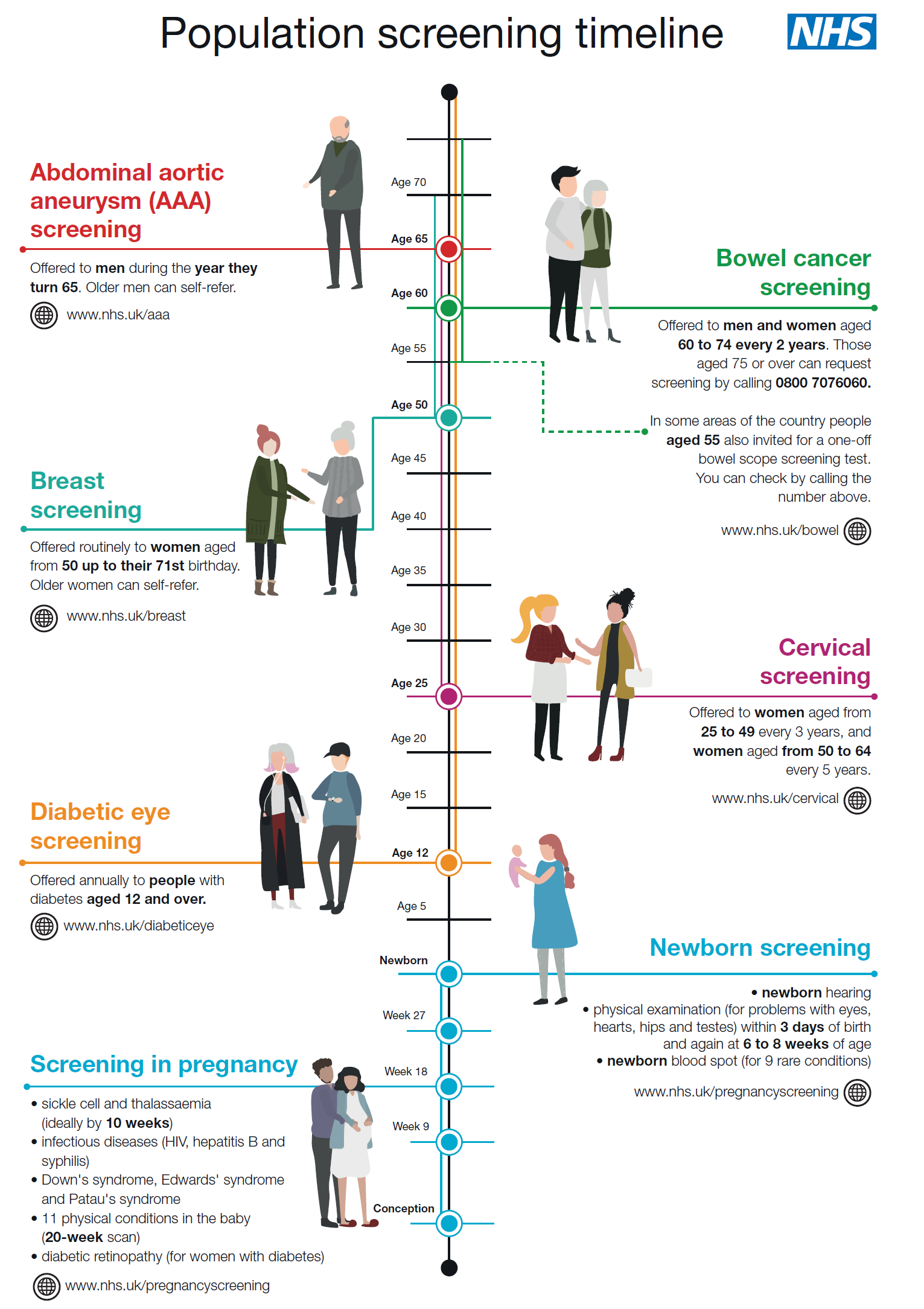Screening may be described as the process of looking at a population perceived to be at risk from a condition in an attempt to identify those at higher risk, in whom some intervention may be made.
A summary of the timeline for the current NHS screening programmes is presented below:

Related pages
Create an account to add page annotations
Add information to this page that would be handy to have on hand during a consultation, such as a web address or phone number. This information will always be displayed when you visit this page